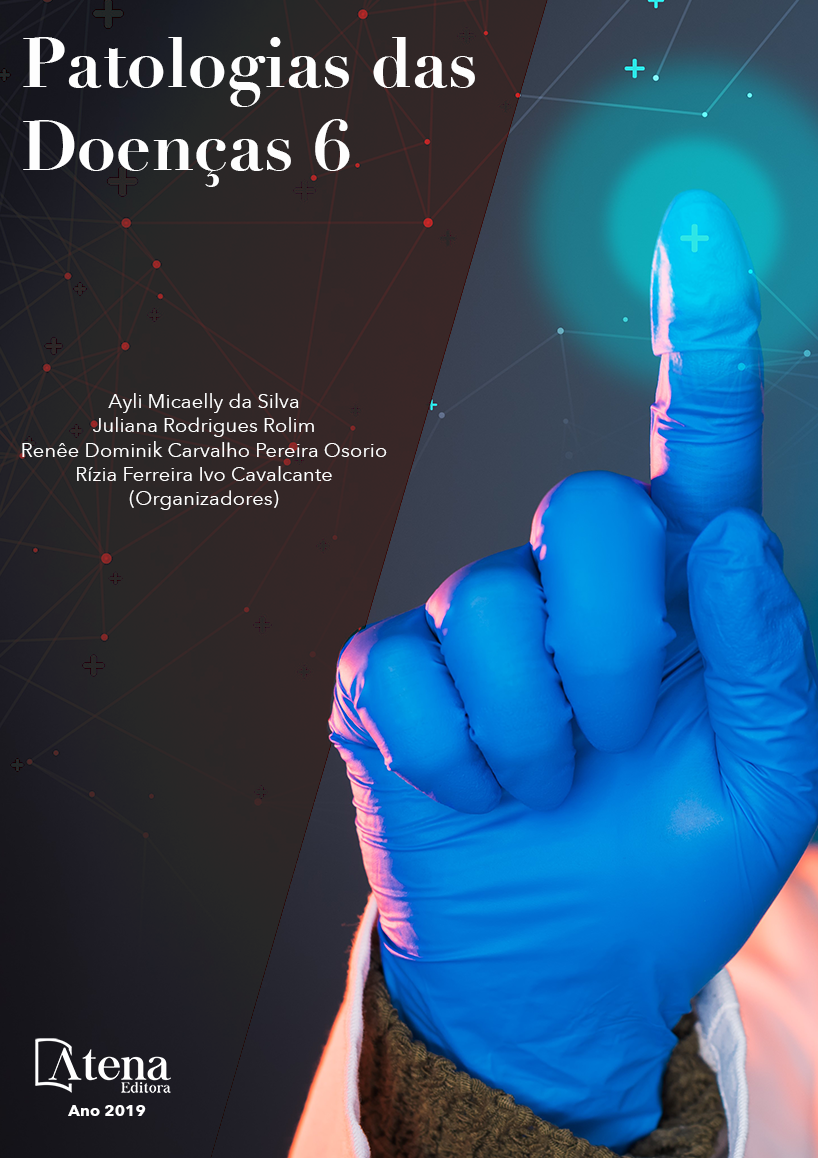
ANÁLISE EPIDEMIOLÓGICA DA HANSENÍASE NO ESTADO DO PIAUÍ
A Hanseníase é uma doença
crônica e infectocontagiosa causada pelo bacilo
Mycobacterium leprae. Essa bactéria possui
tropismo pelos nervos periféricos, e infecta
principalmente as células de Schwann, e quando
não tratada pode evoluir para deformidades
e sequelas importantes. O trabalho objetivou
realizar uma análise epidemiológica dos casos
de Hanseníase ocorridos no estado do Piauí
entre os anos de 2015 a 2017. Trata-se de uma
pesquisa descritiva e retrospectiva, realizada a
partir das informações obtidas na base de dados
online do Sistema de Informação de Agravos
de Notificação (SINAN). Os dados mostraram
a ocorrência de 3.593 casos notificados no
estado nesse período, destes 86,1% foram
casos novos. Entre os casos registrados o
sexo masculino (55,4%) possuiu discreta
prevalência sobre o feminino (44,6%) e a faixa
etária mais acometida foram os indivíduos com
idade entre 50 e 64 anos (27,4%), seguida
pela de 35 a 49 anos (25,2%). Em relação a
classificação operacional a maioria dos casos
eram multibacilares (67,7%) no momento do
diagnóstico, destes 58% apresentavam a forma
dimorfa e 30% a Wirchowiana. A proporção de
cura foi de 83,4%, sendo que no ano de 2017 a
cura foi de apenas 65%. A Hanseníase possui
caráter endêmico no estado, e o número de
casos novos voltou a crescer no ano de 2017,
dado bastante preocupante, principalmente
quando se observa as taxas de cura no estado
que possui níveis baixos. Logo, nota-se a
importância de se implementar medidas de
controle da doença através de ações em saúde.
ANÁLISE EPIDEMIOLÓGICA DA HANSENÍASE NO ESTADO DO PIAUÍ
-
DOI: 10.22533/at.ed.1421925032
-
Palavras-chave: Hanseníase; Epidemiologia; Saúde Pública.
-
Keywords: Leprosy; Epidemiology; Public health.
-
Abstract:
Leprosy is a chronic, infectious
and contagious disease caused by the
Mycobacterium leprae bacillus. This bacterium
is tropic by the peripheral nerves, and mainly
infects the Schwann cells, and when untreated
can evolve into important deformities and
sequelae. The objective of this study was to carry
out an epidemiological analysis of the leprosy
cases occurring in the state of Piauí between
the years 2015 and 2017. It is a descriptive
and retrospective research, based on the
information obtained in the online database of
the Information System of Notification Diseases
(SINAN). The data showed the occurrence of
3,593 cases reported in the state in this period,
of these 86.1% were new cases. Among the
registered cases, males (55.4%) had a slight
prevalence over the female (44.6%), and the
age group most affected were individuals aged
between 50 and 64 years (27.4%), followed
by from 35 to 49 years (25.2%). Regarding
operational classification, most cases were
multibacillary (67.7%) at the time of diagnosis,
of these 58% presented the dimorphic form and
30% Wirchowiana. The cure rate was 83.4%,
and in 2017 the cure was only 65%. Leprosy
is endemic in the state, and the number of new
cases has increased again in the year 2017,
which is very worrying, especially when the
rates of cure in the state are low. Therefore,
it is important to implement disease control
measures through health actions.
-
Número de páginas: 15
- JOSÉ VALDILÂNIO VIRGULINO PROCÓPIO
- AYLI MICAELLY DA SILVA
- ANNE LOUYSE ANDRADE LIRA
- FELIPE DE PAIVA COSTA
- AYANA CARTAXO FORMIGA
- GUILHERME RUAN FERNANDES FERREIRA
- CRISTIANE ALVES PEREIRA
- LUCAS CALDAS ARAÚJO
- VIVIANE DE SOUSA SANTOS
- ARLON SILVA ALENCAR
- WENYA CRISTIANA DE ALMEIDA ABREU
- RENÊE DOMINIK CARVALHO PEREIRA OSÓRIO
- VIVIANE DE CÁRITA CARVALHO OSÓRIO PRUDÊNCIO
- RÍZIA FERREIRA IVO CAVALCANTE
- FABIANE GOMES PEREIRA
- ENOQUE PARENTE PINHEIRO MIRANDA
- DENISE PARENTE PINHEIRO MIRANDA
- KAYO FERNANDES FLORÊNCIO
- RODRIGO RUFINO PEREIRA DA SILVA
- JULIANA RODRIGUES ROLIM


